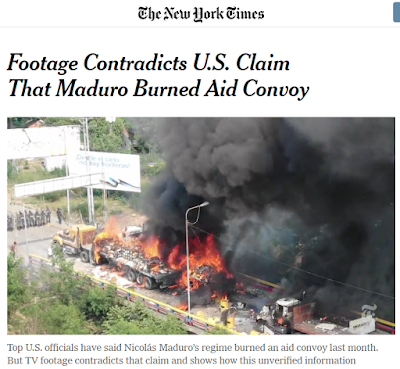Journalism Review acerta
contas com Bolsonaro
 Brazil’s Bolsonaro smears
Brazil’s Bolsonaro smears reporters investigating his son
By Jon Allsop
On Sunday, a president attacked a journalist on Twitter. The president was Jair Bolsonaro, Brazil’s demagogic far-right leader, and the journalist was Constança Rezende, who works for the Estado de S Paulo newspaper. Bolsonaro accused Rezende of working toward his impeachment, and admitting to wanting to ruin the life of his son, Flavio, a senator. Bolsonaro shared audio—sourced from an article written by a party flak and published by a supportive website—to bolster his point. Rezende, Bolsonaro said, wants “to overthrow the government with blackmail, disinformation, and leaks.”
Bolsonaro’s attack was a lie. As the audio demonstrates, Rezende merely remarked that a corruption scandal involving Flavio Bolsonaro is ruining his father politically—Jair Bolsonaro campaigned on an aggressive swamp-draining platform—and could trigger the latter’s impeachment. A head of state lying to smear journalists is always dangerous, but the stakes of this example amplify its significance. Rezende has been active in reporting the allegations against Bolsonaro’s son, which center on irregular payments involving staffers. In his tweet, Bolsonaro also namechecked Rezende’s father, Chico Otávio, who, in his work for O Globo, has helped link Flavio Bolsonaro to a leader of a criminal gang.
Bolsonaro has a long track record of attacking individual journalists, media outlets, and the press in general. Vicious anti-media rhetoric was a hallmark of his presidential campaign, and he has continued it since he assumed office at the beginning of this year. Bolsonaro has routinely sought to undermine the credibility of independent journalism, and even pledged to withdraw government ads from certain outlets. In the 24 hours following his tweet about Rezende, Bolsonaro shared an old video of Denzel Washington saying newspapers misinform people, took a potshot at Vice Brasil, and replied to a Folha de S. Paulo article by tweeting “fakenews!”
If you swap out some of the details, Bolsonaro’s conduct looks almost identical to Donald Trump’s. The press climate in Brazil, however, is significantly worse than that of the US. According to the Committee to Protect Journalists, 25 reporters have been killed in the country in the past decade. Journalists in Brazil are commonly harassed and lack strong legal protections. Reporters Without Borders—which, before Bolsonaro was elected, ranked Brazil 102nd (out of 180 countries) in its 2018 World Press Freedom Index—describes the country’s media as “more insecure than ever.”
Journalists who write negative stories about Bolsonaro frequently find themselves swarmed on social media. Patricia Campos Mello, a journalist with Folha de S. Paulo, told CJR last year that she stopped using her byline in a bid to shake the trolls, but they harassed her anyway. Bolsonaro, who retweeted a viral fake story about Campos Mello, was one of them. In another instance, a journalist who happened to share his name with another reporter received threats related to his namesake’s work.
Following Bolsonaro’s Sunday tweet, Rezende, too, found herself hounded on social media. João Caminoto, director of journalism at Rezende’s newspaper, told The Guardian’s Dom Phillips that she’d had to suspend her accounts.
The audio shared by the pro-Bolsonaro website and then by Bolsonaro himself came, originally, from an interview Rezende gave to a man who identified himself as a student named Alex McAllister. Anna Jean Kaiser and Mauricio Savarese report speculation that the interview may have been a set-up—“similar to the way rightist groups in the US have presented fake sources to journalists and recorded them without their knowledge.” Fittingly, “McAllister” said he was working on a study comparing Bolsonaro to Trump. When it comes to their treatment of the press, such comparisons are plain to see. They should not, however, diminish the heavy price Brazil’s journalists are paying for their efforts to expose the truth.
Below, more on Bolsonaro and the press:
- The chilling effect: In November, Reuters’s Anthony Boadle and Gram Slattery described the impact of Bolsonaro’s press rhetoric: “Several seasoned journalists working for Brazil’s biggest news organizations told Reuters in recent weeks they have started to throttle back their criticism, fearing backlash from a Bolsonaro government—and violence from his supporters.”
- The election: CJR was following along as Brazil went to the polls last year. Zainab Sultan profiled fact-checking sites working overtime to bust junk information on social media. Kyle Pope, our editor and publisher, spoke with Sarah Maslin, The Economist’s Brazil correspondent, on our podcast, The Kicker. And, shortly after Bolsonaro was elected, I wrote about the importance of avoiding equivocation in the language used to describe him.
- The inauguration: Ahead of Bolsonaro’s inauguration as president, Zoe Sullivan outlined the state of Brazil’s media in a detailed feature in CJR. “Brazil’s media is highly concentrated in a few hands,” she wrote. “Fifty percent of the largest media outlets in Brazil are owned by five families; those outlets include RecordTV, Bolsonaro’s preferred outlet, which is owned by Edir Macedo, a billionaire evangelical pastor and media mogul.”
- The presidency: Last week, Bolsonaro drew scorn and ridicule for tweeting an explicit sexual video—an apparent rebuke to protests against his administration during carnival. In a follow-up tweet, he asked, “O que é golden shower?”—“What is a golden shower?” The Guardian’s Tom Phillips has more.















